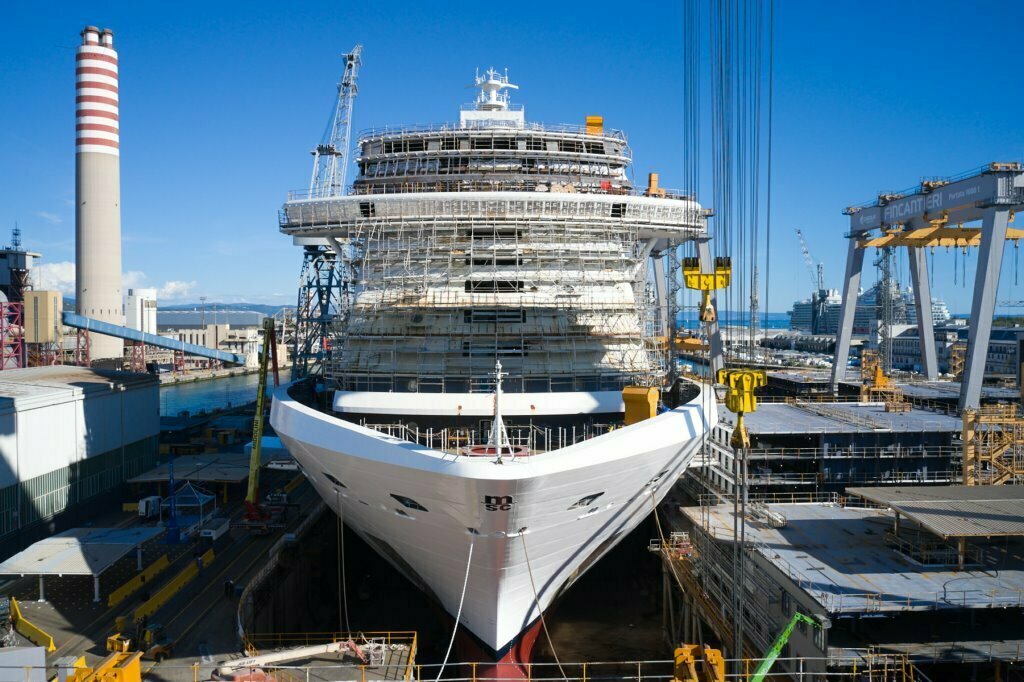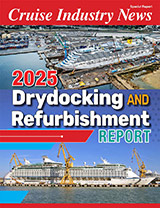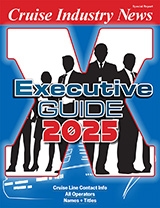2021 will see two new MSC Cruises vessels enter the market, the MSC Virtuosa and MSC Seashore, and both ships will be equipped with a wide range of the latest-generation environmental technologies and equipment, according to the cruise line.
Both newbuilds will feature hybrid exhaust gas cleaning systems (EGCS) and selective catalytic reduction systems (SCR), achieving a 98% reduction of sulphur oxide (SOx) emissions and reducing nitrogen oxide (NOx) emissions by 90%.
Their wastewater treatment systems have been designed in line with the International Maritime Organization’s MEPC 227(64) Resolution and achieve purification standards that are higher than most wastewater treatment facilities ashore, MSC announced, in a press release.
As all MSC Cruises’ newbuilds, they will also be equipped with shorepower, allowing them to connect to local power grids where infrastructure is available.
Pierfrancesco Vago, MSC Cruises’ Executive Chairman said: “Our long-term goal is to achieve a zero-impact cruise operation and this is the journey we are on today. As we work with our partners to identify new technologies that will bring us closer to this goal with each new ship that we build and bring into service, we continue to equip our ships with the latest and most effective technologies in the market.”
In addition, MSC has also announced that it is partnering with several industry players in a research project that promotes low-carbon shipping by combining progressive energy technologies and innovative ship design. Led by the University of Vaasa, the CHEK Consortium – deCarbonising sHipping by enabling Key Technology symbiosis on real vessels concept designs project – involves, in addition to MSC Cruises, the World Maritime University, Wärtsilä, Cargill, Lloyds Register, Silverstream Technologies, Hasytec, Deltamarin, Climeon and BAR Technologies.
The consortium is in line to receive significant funding from Horizon 2020 – the European Union’s framework programme for research and innovation.
According to MSC, the project will seek to demonstrate the synergistic benefits of innovative technologies including hydrogen propulsion, ultrasound antifouling, hull air-lubrication, waste to energy systems and digitalized optimization software, fully integrated to maximize efficiency across all aspects of ship operation.
Looking ahead, in 2022 MSC World Europa, the company’s first LNG-powered vessel, will be delivered.
The first LNG ship for MSC will also get a 50-kilowatt, LNG-powered solid oxide fuel cell technology project that offers a potential to reduce greenhouse gas emissions by a further 25% compared to a conventional LNG engine.
Linden Coppell, MSC Cruises’ Director of Sustainability, noted: “Every new ship that joins our fleet incorporates solutions to minimise our environmental footprint. MSC Virtuosa and MSC Seashore will be no exception. As new technologies are identified, we also work to improve the existing fleet, investigating retrofit opportunities, incorporating new energy reduction measures, working extensively with industry experts and seeking out drop-in alternative fuels to achieve the ambitious carbon intensity reduction goals of our industry.”




